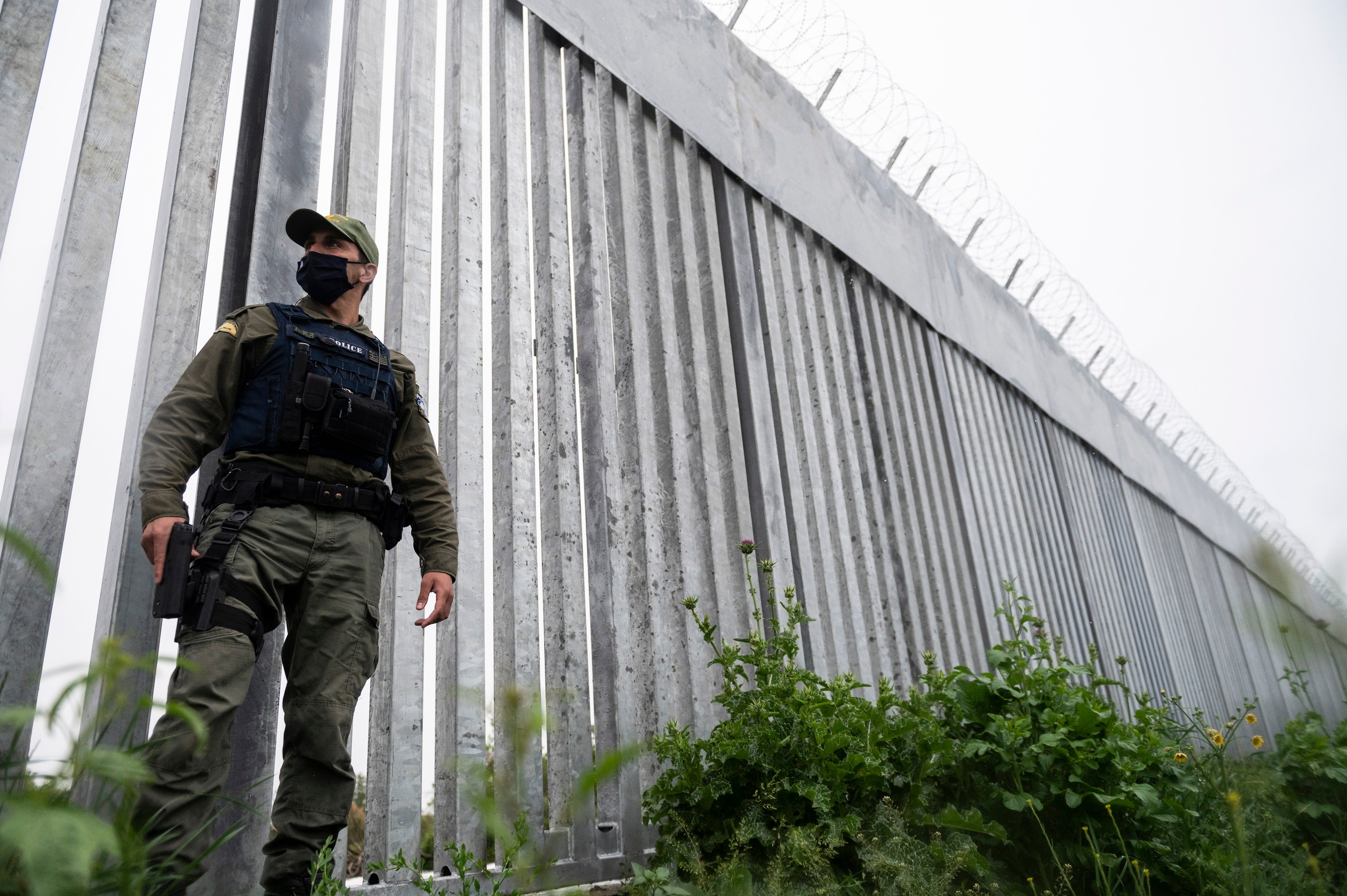Greek PM, Turkish president to discuss Afghan developments
Greece’s prime minister and Turkey’s president are to speak Friday evening to discuss developments in Afghanistan

Your support helps us to tell the story
From reproductive rights to climate change to Big Tech, The Independent is on the ground when the story is developing. Whether it's investigating the financials of Elon Musk's pro-Trump PAC or producing our latest documentary, 'The A Word', which shines a light on the American women fighting for reproductive rights, we know how important it is to parse out the facts from the messaging.
At such a critical moment in US history, we need reporters on the ground. Your donation allows us to keep sending journalists to speak to both sides of the story.
The Independent is trusted by Americans across the entire political spectrum. And unlike many other quality news outlets, we choose not to lock Americans out of our reporting and analysis with paywalls. We believe quality journalism should be available to everyone, paid for by those who can afford it.
Your support makes all the difference.Greece’s prime minister and neighboring Turkey’s president are to discuss developments in Afghanistan in a call Friday evening, the prime minister's office said, as both countries raise concerns about a potential major influx of people fleeing the Taliban.
Athens insists it will not allow a repetition of 2015, when hundreds of thousands of people crossed in smugglers’ boats to Greek islands from the nearby Turkish coast, on their way to seek asylum in more prosperous European Union countries.
Greece's defense and citizens' protection ministers visited the northeastern Evros land border with Turkey Friday to view barriers against potential migratory pressure and other recently installed security systems.
Greece has bolstered border defenses since March 2020, when Turkey announced its frontier to Europe was open and encouraged thousands of migrants to head to the Greek side, leading to scenes of chaos.
Greece’s prime minister, Kyriakos Mitsotakis, would be speaking with Turkish President Recep Tayyip Erdogan at 7:30 p.m. local time (1630 GMT), Mitsotakis’ office said.
“The Afghan crisis is creating new parameters in the geopolitical sphere, and at the same time creates the possibility of migratory flows,” Citizens Protection Minister Michalis Chrisochoidis said in the Evros region.
He noted that while Greece is an EU member and supports human rights, “we can't wait apathetically for the possible consequences,” adding that Athens would not allow migrants to be used to put pressure on Greece.
“It is our decision to defend and secure our borders,” he said. “Our borders will remain safe and inviolate.”
Defense Minister Nikolaos Panagiotopoulos said Greece had examined ways to bolster the surveillance and guarding of its frontier, while Chrisochoidis noted that a border fence about 40 kilometers (25 miles) long had been constructed in Evros since the March 2020 events.
Turkey has also expressed concern over the potential of large numbers of Afghans heading its way. On Thursday, Erdogan called on European nations to shoulder the responsibility for people fleeing the Taliban, warning that Turkey will not become Europe’s “refugee warehouse.”
Anti-migrant sentiment has been running high as Turkey grapples with economic woes, including high unemployment, that have been exacerbated by the coronavirus pandemic, and there is little appetite in the country to take in more people.
“We need to remind our European friends of this fact: Europe — which has become the center of attraction for millions of people — cannot stay out of (the refugee) problem by harshly sealing its borders to protect the safety and wellbeing of its citizens,” Erdogan said.
“Turkey has no duty, responsibility or obligation to be Europe’s refugee warehouse,” Erdogan said.
The comments came amid an increase in recent weeks in the number of Afghans making their way into Turkey across the border from Iran.
The previous day, Greek Migration Minister Notis Mitarachi said the current priority was to evacuate Europeans and Afghan citizens who had worked with EU forces there, but that Greece “does not accept to be the gateway for irregular flows into the EU.”
Speaking on private Skai TV, he noted that Greece does not border Afghanistan, and “there are countries to the east of us who could provide initial protection where necessary.” Turkey, he added, was a safe country for Afghan citizens.
But Turkey already hosts large numbers of refugees. Erdogan said his country is home to 5 million foreign nationals, including 3.6 million Syrians who fled the civil war in the neighboring country and 300,000 Afghans. Around 1.1 million are foreigners with residence permits, he said.
In 2016, Turkey and the EU signed a deal for Turkey to stop the hundreds of thousands of migrants and refugees heading toward Europe, in return for visa-free travel for Turkish citizens and substantial EU financial support.
Erdogan has frequently accused the EU of not keeping its side of the bargain, while the deal led to thousands of asylum-seekers languishing in squalid refugee camps on the eastern Greek islands.
The migration issue has also led to flare-ups in tension between Greece and Turkey, NATO allies who have come to the brink of war several times since the mid-1970s.
____
Follow AP’s global migration coverage at https://apnews.com/hub/migration